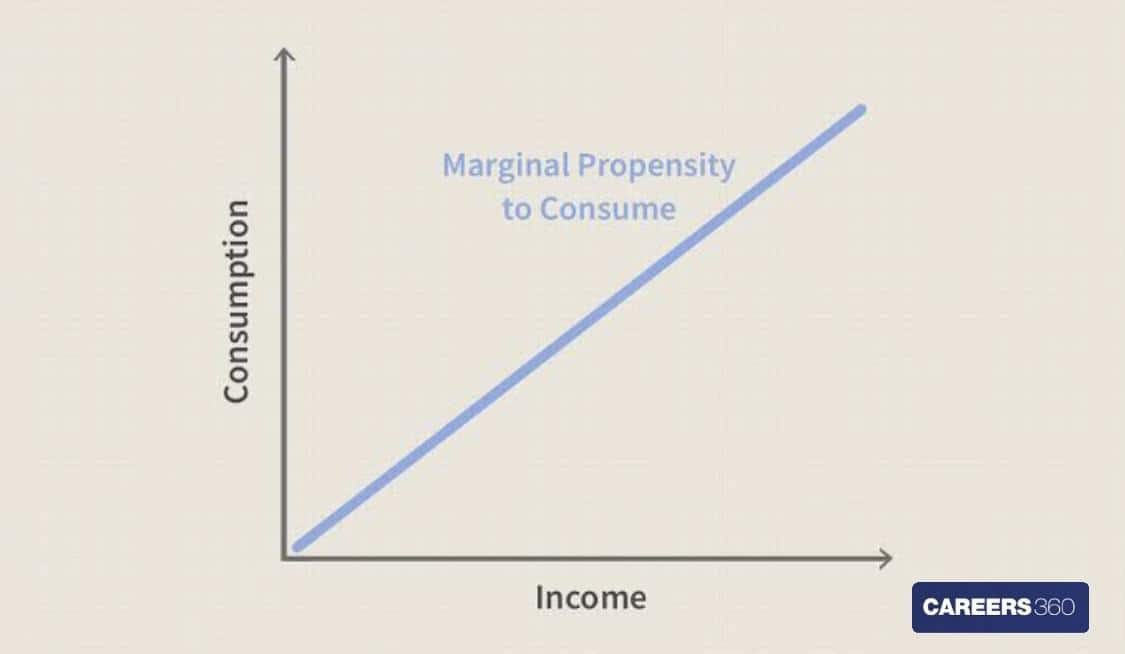MPC Full Form
What is the full form of MPC?
Marginal Propensity to Consume is referred to as MPC. It is described as the percentage of an increase in income that consumers spend on goods and services rather than saving.
It is a crucial part of Keynesian macroeconomic theory. According to this hypothesis, a person's propensity to consume more increases with an increase in income.
It measures the percentage of extra income that is spent on the consumption of goods and services rather than conserving it, or we may say that it measures the proportion of rising consumption with rising income.
MPC is reliant on one's degree of income. The MPC may change depending on income levels, and it is obvious that it is lower at higher income levels.

Importance
MPC is significant since it fluctuates with income and is lowest for households with higher incomes.
By dividing the change in spending by the change in income, the marginal propensity to consume is determined.
In Keynesian macroeconomic theory, the marginal propensity to consume is a significant factor in showing the multiplier effect of economic stimulus expenditure.
An increase in government spending will boost consumer income, which will cause consumers to spend more money. This increase in investment will raise the overall level of demand at the macroeconomic level.
According to economic theory, spending and consumption increase as income climbs.
To calculate how much spending rises for every dollar of increased income, MPC measures this relationship.
Calculation of MPC
Divide the change in consumption by the change in income to get the marginal propensity to consume.
Features of MPC
The MPC, or marginal propensity to consume, is influenced by income.
MPC may change depending on income levels, and it is obvious that it is lower at higher income levels.
By dividing the change in consumption by the change in income, the MPC can be determined.
MPC on Graph
A consumption line, which is a sloped line made by charting the change in income on the horizontal "x" axis and the change in consumption on the vertical "y" axis, is used to represent MPC.

Advantages of MPC
The benefit of the MPC is that it is a multivariable controller that simultaneously controls the outputs while accounting for all of the interactions between the system variables.
The ability of MPC to manage restrictions is another strength.
Constraints are crucial because breaking them can have negative influences.
Frequently Asked Questions (FAQs)
MPC stands for Marginal propensity to consume.
Consumption grows by the MPC times an increase in income for every dollar of income. As a result, the MPC is the slope of the consumption function.
By dividing the change in consumer spending (C) by the change in disposable income (I), the MPC formula is created. The formula for the marginal propensity to consume is (C1 - C0) / (I1 - I0).
where C0 is the initial amount spent by consumers.
C1 is the current amount spent by consumers.
I0 is the initial income of the consumers.
I1 is the current income of the consumers.
MPC predicts plant outputs in the future using a model of the plant. To determine the best control action that brings the anticipated plant output as closely as feasible to the intended reference, it solves an optimization problem at each time step.
MPC values will always fall inside the 0–1 range. If an individual consumes all of the additional income, the change in consumption (C) will be equal to the change in income (Y), making MPC = 1.
The slope of the IS curve grows with the MPC in the absence of proportional tax and trading. The following equilibrium condition in the product market defines the IS curve in the closed economy IS-LM model: G + I(r) + C 0 + MPC × (Y - T) = Y.
